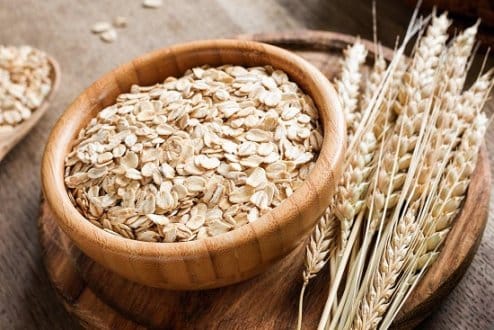Oatmeals are one of the healthiest, most convenient breakfast options because it contains high amounts of vitamins and nutrients that the body needs for its daily functions.
For individuals with Type 1 and Type 2 Diabetes, it is necessary to strictly monitor the carbohydrate and sugar intake of every meal to ensure that no sudden spikes of high blood glucose may happen all throughout the day.
Although this comes with certain dietary restrictions, knowing an extensive range of healthy options to choose from is key to preparing nutritious, satisfying meals.
Is oatmeal one of these viable options?
Oatmeal: What Is It?
Oatmeal is a hot cereal made from a type of whole grains called oats. Oat comes from oat groats, which are oat kernels with husks removed. These oat groats are milled, steel-cut, rolled, or ground, and then added with water or milk to become oatmeal. Oatmeal may be added with nuts, sweeteners, or fruits.
There are several types of oatmeals, and it matters which types of oatmeal to grab for the next meal. Depending on how the oatmeals are processed, some forms and preparations of oats are healthier choices than others.
Whole oats (groats) are the least unprocessed therefore retaining most of its original nutrients. However, it takes an hour alone to cook and does not have much variation in its chewy, nutty flavor.
Steel-cut oats are whole oats chopped into two or three pieces. They contain a high amount of soluble fiber which are slow to digest, aiding in satiety and reducing the meal-induced increase in blood glucose levels.
Rolled oats are made from flattening and streaming oat groats. They are prepared more quickly than steel cut oats and are often used as an ingredient for baking.
Instant quick oats are the most processed variety of oats. They are made from rolled oats which are then steamed, dried, rolled and pressed. Instant quick oats populate grocery shelves as they are relatively the easiest ones to prepare.
However, instant oatmeal preparations (prepackaged, instant oatmeal) come with more processed ingredients such as added sugar, sodium, and artificial flavorings or dried nuts. These added ingredients may be the culprit responsible for unexpected risings in blood glucose levels, if not careful.
Nutritional Benefits of Oatmeals
With diabetes, much consideration is given not only to the amount of sugar and carbohydrate contained in a particular food source. Diets should also consider if a meal can nurture the body’s overall systems to be able to resist and fight off complications that may arise from the condition.
Unprocessed, unflavored cooked oatmeal contains:
- 160 calories
- 27 grams of carb
- 4 grams of fiber
- 3 grams of fat
- 115 milligrams of sodium
In addition to this, unprocessed oatmeal also contains B vitamins, magnesium, iron, copper, manganese, zinc and phosphorus, and polyphenols that improve blood pressure.
Oatmeals contain soluble fiber that comes from beta glucan, a type of polysaccharide that aids in lowering blood glucose and cholesterol levels because it slows down the absorption of carbohydrates through the intestines. Soluble fibers also supplement the body’s immune systems.
Oatmeals contain low glycemic index, which is a crucial determinant for dietary recommendations for diabetes. Glycemic index, or GI, ranks how high can the food’s carbohydrates raise the body’s glucose levels. The higher the GI, the more it can cause a spike in a person’s blood sugar level.
Food sources with low glycemic index pose can be safely consumed in well-balanced diets for people with diabetes. LOW GI are those with a score of 55 or less, Medium GI from 56 – 69, and High GI is 70 and above. Steel cut oats and rolled oats have a GI score of 55, while instant oats may sometimes reach 70 and above.
Aside from these, oatmeals are also beneficial for weight management diets, because the slower digestion of its soluble fibers help in feeling full easily, which lessens the likelihood of snacking or overeating after meals.
Recommendations for Oatmeal Preparations
To make sure its preparations are optimized for the most nutritional benefits, here are a few tips:
- Stick with steel-cut or rolled oats. Soluble fibers offer the bulk of its nutrients and minerals, which may get lost in processed instant oats. If using instant oatmeal, make sure to use the unflavored variety and always check its nutritional value.
- Increase its protein content to help with appetite satiety and to help manage blood glucose levels. A tablespoon of nuts, plain Greek yogurt, even nut butter and boiled egg may work.
- Flavor not with artificial flavors or actual sweeteners but with cinnamon, nutmeg, ginger, fresh berries, chopped apple, pomegranate arils (seeds), or pear. These are antioxidants, and may also improve insulin sensitivity.
- Use water, low-fat milk or unsweetened plant-based milk.
- Always be mindful of meal portions. No matter how good or healthy a meal is, excessive consumption will always lead to extra calories, sugar, and carbohydrates.
Final Takeaway
Unprocessed oatmeal is an excellent food choice for individuals with Type 1 and Type 2 Diabetes. It may also come in different preparations, combined with other healthy products, to produce a hearty, nutritious meal. But like all food sources, oatmeal must be taken in appropriate amounts according to designation portions to ensure the body is nourished by its many nutrients in the best possible way.
—
Disclaimer: Please note that the contents of this community article are strictly for informational purposes and should not be considered as medical advice. This article, and other community articles, are not written or reviewed for medical validity by Canadian Insulin or its staff. All views and opinions expressed by the contributing authors are not endorsed by Canadian Insulin. Always consult a medical professional for medical advice, diagnosis, and treatment.


